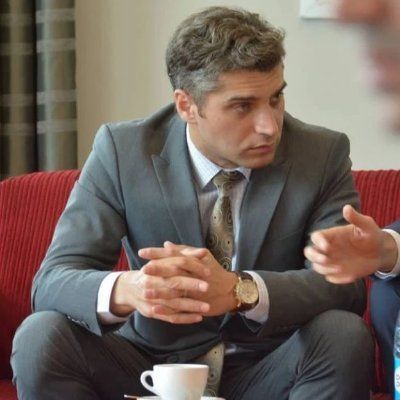31 March Genocide: History of Armenian crimes spanning over a century
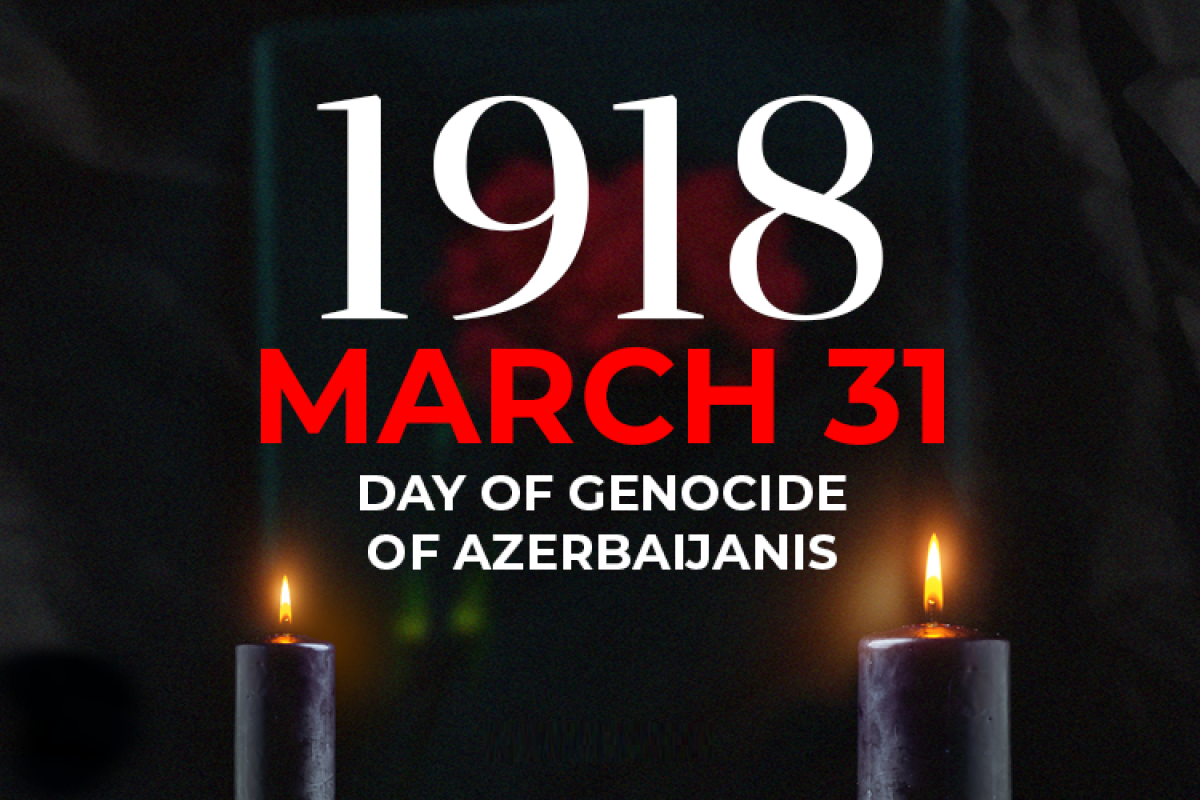
Azerbaijan is a country in the South Caucasus that has been subject to great division and has experienced a 100-year history of tragedy.
The basis of these tragedies was laid precisely by the agreements of Gulustan and Turkmenchay signed in 1813 and 1828, prior to the splitting up of the Azerbaijani people and the division of our historical lands. The successive acts of genocide committed against our civilians continued in the subsequent period with the process of alienation of the divided lands.
During that period, Armenians were resettled on a large scale to the lands of Azerbaijan in a short period of time. Inspired by the dream of creating "Great Armenia", Armenian usurpers carried out a series of mass massacres against Azerbaijanis in those times.
Between March 30 and April 3, 1918, Baku Soviet and Dashnak Armenian armed groups brutally killed Azerbaijanis en masse and arsoned houses in Baku governorate, as well as in Shamakhi, Guba, Khachmaz, Lankaran, Hajigabul, Salyan, Zangazur, Karabakh, Nakhchivan and other areas.
After 80 years, on March 26, 1998, National Leader Heydar Aliyev, as the President of the Republic of Azerbaijan, signed the Decree on marking March 31 as the Genocide Day of Azerbaijanis.
History is not dead and buried
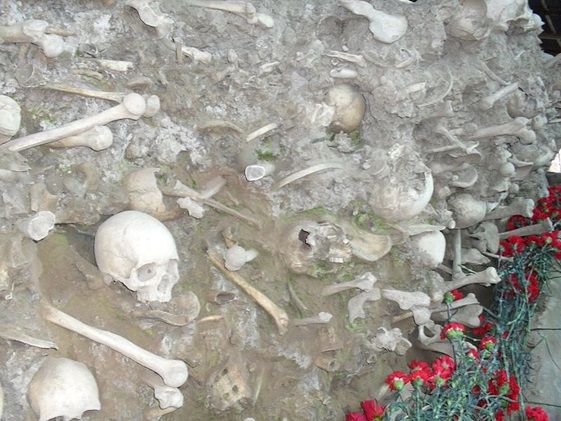
The mass grave, discovered accidentally during the excavations for construction purposes in the town of Guba in 2007, was a vivid evidence of the genocide of the Muslim population of Guba, committed by Armenian armed forces under Bolshevik name in May 1918. President of the Republic of Azerbaijan, Ilham Aliyev signed the disposal to create a 'Genocide Memorial Complex' in Guba city on December 30, 2009 with a view to delivering these realities to the world community, preserving national memory of future generations of the Azerbaijani people and eternalizing the genocide victims’ memory. The Memorial Complex was constructed on the left bank of the Gudyalchay River in Guba city, in the former stadium area in 2012-2013.
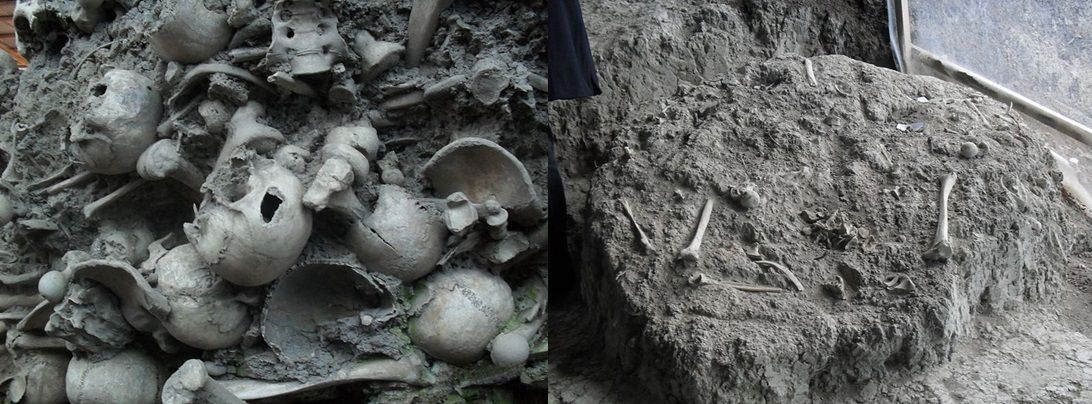
The place where the human bones were found during the reconstruction of the sports complex on the right bank of Gudyalchay in the Guba area cannot be called a cemetery. Because human bones were found in a pile as thrown in large holes. The bones were found in two wells on the banks of the river. The diameter of the large well is 5 meters, and the smaller one is 2.5 meters. There is a distance of 2 meters between the wells. Hundreds of commingled human skeletons were poured into the big well.
Even archeologists and officials from the local authoritative organs confirmed that, there has never been a cemetery in this area. The fact that the skeletons were not found intact indicates that people were brutally smashed, torn apart and thrown into the wells after being killed. The most terrible point is the separate burial of the human skull and body bones in the discovered area, which shows that the heads of genocide victims were cut off with special cruelty.
And most importantly, the forensic researches confirms that the bones found in the wells during the excavations in Guba belong to the victims of the Armenian genocide in 1918.
This once again shows that history can neither be killed nor buried. This means that the real face of history is not on the surface, but under the soil.
The Patriotic War that put an end to tragedies
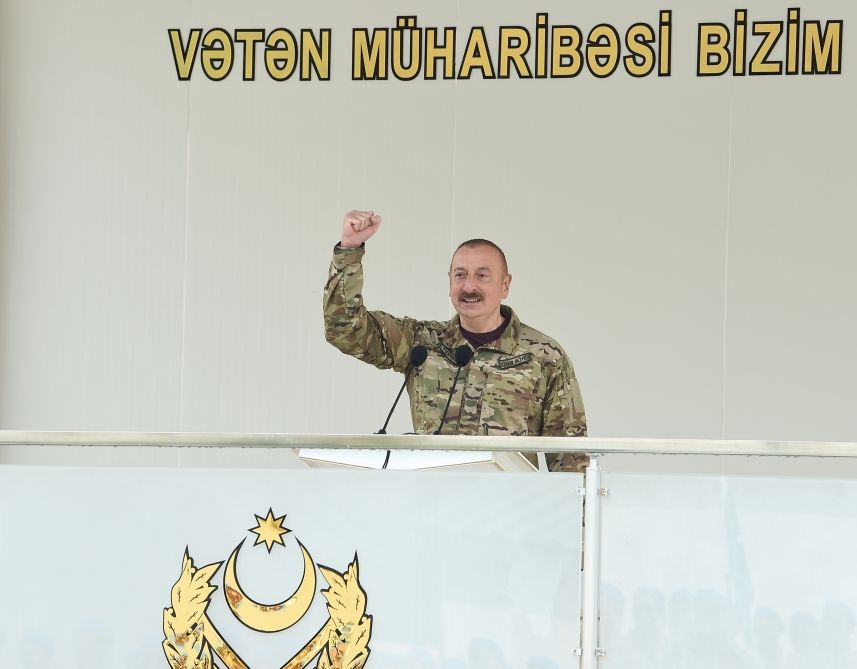
Indeed, as the saying goes, with every difficulty, comes relief. The people of Azerbaijan successfully emerged from the ordeal of history by struggling for 100 years. Despite lands were occupied, innocent people were killed - but people of Azerbaijan was not totlly defeated.
However, Armenian vandalism did not end with the 1918 genocide. When we flip through the history pages of 1990, 1991 and 1992, we come across the tragedies of genocide again. Such tragedies as Garadağli, Khojaly, Agdaban, Ballıgaya, Bashlibel and others show that Armenian hatred has not cooled down over years. Nevertheless, this had to end one day, and finally that day came - the Second Karabakh or Patriotic War, which ended with the glorious victory of Azerbaijani army under the leadership of the supreme commander-in-chief, put an end once and for all to the centennial Armenian policy of genocide against the people of Azerbaijan.
---
Elnur Enveroglu is AzerNews’ staff journalist, follow him on @ElnurMammadli1
Follow us on Twitter @AzerNewsAz
Here we are to serve you with news right now. It does not cost much, but worth your attention.
Choose to support open, independent, quality journalism and subscribe on a monthly basis.
By subscribing to our online newspaper, you can have full digital access to all news, analysis, and much more.
You can also follow AzerNEWS on Twitter @AzerNewsAz or Facebook @AzerNewsNewspaper
Thank you!

